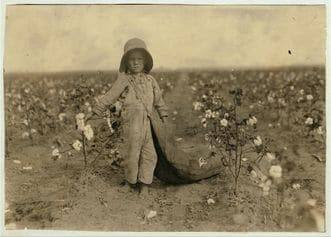James 1: 17-27
New Ark United Church of Christ, Newark, DE
Sept. 2, 2018
Earlier this week, as part of my sermon preparation, I posed a question on my Facebook page: “Do you love whatever it is that you do? If not, why do you do it?” And I asked about whatever you do because what you do could be a volunteer position or you’re a stay-home parent or really anything; because we all labor in different ways; because I didn’t want to limit the responses I got.

Some who responded said that no, they don’t exactly love what they do, but what they do allows them to do other things that they are passionate about, enables them to do the things that feed the soul, or it provides for the people they love, or they don’t love what they do but they love why they do it, even if “it” is doing the right thing. One person responded in all caps, “IT AIN’T ABOUT ME!”, that the ego can be a trap, that all labor done faithfully is a holy thing. Some responded that yes, they do love what they do but not all the time. One person said, like marriage, our work is about making a life. Another pointed out that this is a question for the middle and upper class, while someone else responded that for the working and middle classes, the answer is rent or mortgage and health insurance.

I have to say that this is one of my favorite ways to begin thinking about what the message will be because of how people respond and engage, how we all want our lives to matter in some way; that who we are is important somehow to someone else. We all know the world is not only unfair but unjust, not only when it comes to our work but especially how we care for those whose work is taken for granted or painfully necessary or tedious and unsafe and those who are unable to work. Our love, who we are, who we love, is in our work, in our livelihood whether we love what we do or not.
Nobel laureate and economist James Buchanan would’ve said that sounds like a naïve pipedream. Like Ayn Rand but even worse, Buchanan believed no one is altruistic, that everyone—politicians and government workers but also teachers, doctors, and civil rights activists—are all out for themselves, that all of us only want to control others and their resources to ensure our own survival. In his 1975 book, The Limits of Liberty, he wrote, “Each person seeks mastery over a world of slaves.”
Buchanan’s ideas sound scary and familiar enough but even more so when he caught the attention of Charles Koch and the power of all that money. In Buchanan, Koch found someone who could help him save capitalists like himself from the democracy we cherish, and slowly, quietly corrupt it into an oligarchy. And we’ve seen the signs of this oncoming collapse in the Citizens United decision, in the privatization of schools, prisons, health care—every policy that favors the preservation of wealth and limits the agency of the poor, the marginalized, and those teetering on the edge of losing what they have.
So the real question before us is, do we love not only being and doing but becoming what it means to be a Christian? Do we love becoming a disciple, a follower of Jesus, a church person, a minister like it says in the bulletin? Because I believe in that so-called naïve pipedream. I believe that it is this kind of love, a deeper love—a love that is patient and kind, a love that is not envious or boastful or arrogant or rude, a love that does not insist on its own way, a love that seeks the truth and never gives up, a love that compels us to love both our enemies and our neighbor, a love that we don’t always feel but without it, as Eugene Peterson puts it, we are bankrupt—it is this kind of love with which we labor and fight, resist and persist, and eventually, evolve. It is this kind of love with which we resist evil, make justice and establish peace.
This is the word, the word that “became flesh and blood and moved into the neighborhood” (John 1: 14, The Message), that word we come to know in Jesus, whose word is love--I think this is what the author of James means when he makes the distinction between hearers of the word and doers of the word. Is that word implanted in us? Has that love become visible in our flesh and blood? That kind of love sounds like music to our ears but are we willing to actually love that way, to love the world that way, even when we aren’t feeling it?
For it is here at this Table that we remember that God so loved the world that God gave us Jesus, that whoever believes in him, that is, allows their lives to be changed by that love, they shall not perish but have eternal life—they shall come alive with love.
Samuel Gompers, an American labor leader and the first president of the American Federation of Labor, said in 1893 that “what does labor want [but what we all want]? We want more schoolhouses and less jails; more books and less arsenals; more learning and less vice; more leisure and less greed; more justice and less revenge; in fact, more of the opportunities to cultivate our better natures.”
Sounds like eternal life to me, like a labor of love.
Amen.












Comments
Post a Comment